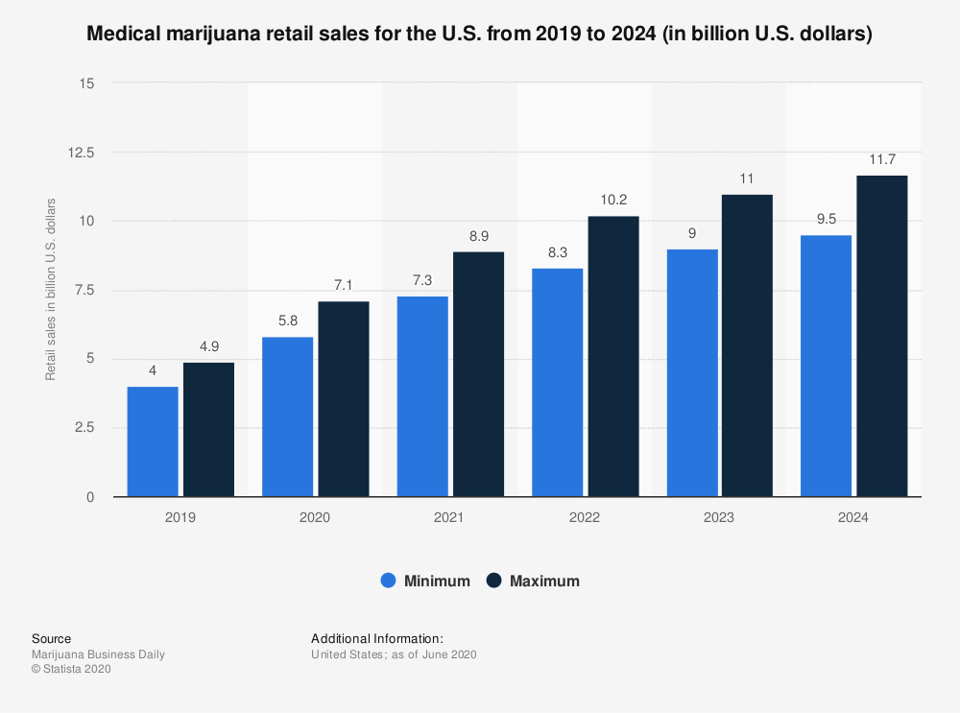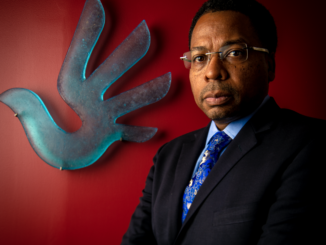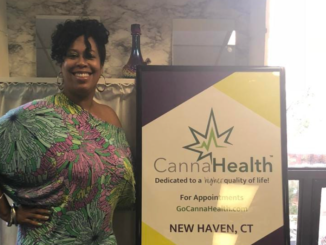
Mario B. Williams has never been one to shy away from a fight. As head of NDH Law, the Atlanta-based attorney has worked on behalf of jail inmates, immigrants, the mentally disabled and minorities who have won settlements against police agencies,.
Now, tapping his entrepreneurial instincts, Williams will soon open 9 Leaves, an upscale medical marijuana and CBD retail store in Atlanta. In doing so, he and his partners are up against a discriminatory financial system, the politics of legalizing marijuana and scant minority representation and ownership in that business.
“The sad and unfortunate reality for African Americans is that black-owned businesses are still two to three times more likely to be rejected for a loan than white business owners,” Williams said. “I think, in particular, this form of discrimination, along with the stigma that still follows the cannabis and smoking industry, makes entrepreneurial ownership within the industry particularly difficult for people of color who simply cannot afford to put up a substantial portion of their own money.”
Still, the legal marijuana industry represents a major opportunity for black entrepreneurs that “have the upfront money, understand the licensing requirements and can navigate the political and legal landscape,” Williams said.
By many accounts, the use of marijuana is growing by staggering numbers, as it becomes increasingly legal. Thirty-five states have legalized marijuana use for medicinal purposes, with 15 of those also allowing for recreational use. New Frontier Data, which specializes in analyzing the legal marijuana sales, estimated the market at $13.6 billion in 2019. The global market is expected to reach $73.6 billion by 2027, estimates Grand View Research Inc.

This market growth aligns with public sentiment favoring using cannabis for both medical and recreational purposes. A new Pew Research survey found two out of three Americans believe marijuana use should be legalized, with use among adults aged 50 to 64 doubling over the last 10 years.
Despite that overwhelming support for the recreational use of marijuana, the industry’s future remains murky. Possessing, using, distributing and/or selling marijuana or marijuana-based products is still illegal under federal law. The federal government often defer to state decriminalization laws, but they could come in later to enforce the federal regulations.
“That sounds like selective enforcement,” Williams said. “I’m always going to be compliant with Georgia law, but if the feds come in, I’ll fight that to day’s end. I’m going to keep advocating for the uniform acceptance of it as we grow.”
Increasing Black Business Participation
A 2017 survey conducted by Marijuana Business Daily revealed that only 19 percent of the respondents identified as persons of color. Only 4.1 percent identified as African American.

“Ironic, to say the least, is the fact that people of color, especially African Americans, have an extraordinarily difficult time establishing a business within the cannabis industry, despite the fact that the possession of cannabis has disproportionately and negatively affected people of color via mass incarceration,” Williams said. “[But] despite the discriminatory obstacles, I’m proud that our black-owned business falls in line with a long and rich history of black entrepreneurship that has occurred after the abolition of slavery.”
Williams offered encouraging words to minorities who want to start a similar business.
“It’s like anything else: do your research, try to create a unique experience, connect with people and never assume that you cannot get financial backing,” he said. “Get a business plan, seek investors, apply for loans and take all necessary risks to give yourself a legitimate shot at success.”
Those with capital can support black businesses and engage in meaningful inclusion efforts, Williams said.
“The next time a person of color approaches you with a plan to make money in the cannabis industry, take that person seriously by talking to them and teaming with them if his or her plan provides for a real opportunity for success,” he said. “I personally believe that backing minorities in the cannabis business speaks volumes in terms of acknowledging the perverse affects that cannabis has had on people of color, like mass incarceration.”
Hope From Pro-legalization Advocates
Pro-legalization forces have expressed hope in bipartisan support for some form of marijuana legalization, although questions remain how many Democrats will oppose it and how many Republicans will support it.
During a recent media briefing, White House Press Secretary Jen Psaki outlined President Joe Biden’s position.
“The president supports leaving decisions regarding legalization for recreational use up to the states, rescheduling cannabis as a Schedule II drug, so researchers can study its positive and negative impacts and, at the federal level, he supports decriminalizing marijuana use and automatically expunging any prior criminal records,” she said, adding Biden supports legalizing medical marijuana.
But, Psaki stopped short of saying Biden would sign legislation in its current form, saying Biden’s position isn’t the same as what the House and Senate have proposed.
Senate Majority Leader Chuck Schumer (D-NY) is working with Sens. Cory Booker (D-NJ) on a pro-legalization bill, and there is discussion Sen. Rand Paul (R-KY) and other Republicans may come along.
Advocates say the more acceptance of marijuana the less stigma will be attached to it, paving the way for more businesses to open.

“This will be a high-end smoke shop, not just catering to the 21-40 age group,” said Gretchen Steed, 9 Leaves partner and former manager of Smoke 911 in Atlanta.
“I want anyone of age to come in and feel like we have the best customer service, along with the best products, and that it’s not taboo to be in a smoke shop. The store will have clean lines and have a modern look that will make it stand out compared to other smoke shops in Georgia.”
Steed brings more than 17 years of smoke shop experience to the 9 Leaves project, raking in nearly $100,000 per month while running Smoke 911.
With Williams as the lead investor and brainchild behind 9 Leaves and Steed as store manager, the team is rounded out by Williams’ brother, Damon, who Williams said has been an integral component of the project, bringing both product knowledge and interior design ideas to the table.
“I’ve built relationships in the cannabis business through my traveling and networking in and around California and Oregon,” said Damon Williams, “and I was blessed to find a company whose practices of growing cannabis were based on science and helping folks rather than making a quick buck. In 2018, I started my own CBD company, Botanix. Now, being given an opportunity to work with my brother and open up a modernized smoke shop, I have the experience to help our company, 9 Leaves, flourish in the industry.”
9 Leaves is expected to open in late May.
The “luxe experience” that the 9 Leaves team is envisioning is about more than simply offering cannabis-based products.

Providing a “Luxe Experience”
Williams’ 9 Leaves aims to be an industry-changer.
While the company waits for the Georgia Access to Medical Cannabis Commission to call for medical marijuana dispensary license applications, it will offer its diverse customer base a wide array of CBD, hemp and vaping products in an upscale environment.
“This will be a high-end smoke shop, not just catering to the 21-40 age group,” said Gretchen Steed, 9 Leaves partner and former manager of Smoke 911 in Atlanta.
“I want anyone of age to come in and feel like we have the best customer service, along with the best products, and that it’s not taboo to be in a smoke shop. The store will have clean lines and have a modern look that will make it stand out compared to other smoke shops in Georgia.”
Steed brings more than 17 years of smoke shop experience to the 9 Lives project, raking in nearly $100,000 per month while running Smoke 911.
With Williams as the lead investor and brainchild behind 9 Leaves and Steed as store manager, the team is rounded out by Williams’ brother, Damon, who Williams said has been an integral component of the project, bringing both product knowledge and interior design ideas to the table.
“I’ve built relationships in the cannabis business through my traveling and networking in and around California and Oregon,” said Damon Williams, “and I was blessed to find a company whose practices of growing cannabis were based on science and helping folks rather than making a quick buck. In 2018, I started my own CBD company, Botanix. Now, being given an opportunity to work with my brother and open up a modernized smoke shop, I have the experience to help our company, 9 Leaves, flourish in the industry.”
9 Leaves is expected to open in late May.
The “luxe experience” that the 9 Leaves team is envisioning is about more than simply offering cannabis-based products.
“9 Leaves is about selling CBD and hookahs products [right now], and eventually we’d like to open up a medical marijuana dispensary, but I also want to use the platform to talk about societal issues in a social and communal environment,” Williams said.
A key driver in that business model is the September 2019 suicide death of Steed’s Smoke 911 partner and fiancé.
“We will be donating 3 to 4 percent of our gross monthly sales, with half going to suicide-prevention initiatives and the other half going to community-activism groups,” Williams said. “We want to educate historically disenfranchised people about economics, and use the platform to educate people on cultural issues that mean something to people of color.”
The notion of building a civic salon is in keeping with an emerging trend in the business world, where companies are tying their brands to societal concerns.
The 2018 Edelman Earned Brand study, showed that 64 percent of global consumers will buy or boycott a brand based on its position on a social or political issue.
“[A] major factor in me wanting to work with Mario is that he is huge into civil rights and the store will list resources for mental illness, civil rights, etcetera.,” said Steed.
“We’re not just a retail store, but an outlet for the community if they need help.”
(Edited by Matthew B. Hall, Alex Willemyns and Bryan Wilkes)
The post Minority Entrepreneurs Face Uphill Battle To Enter Legal Marijuana Market appeared first on Zenger News.





